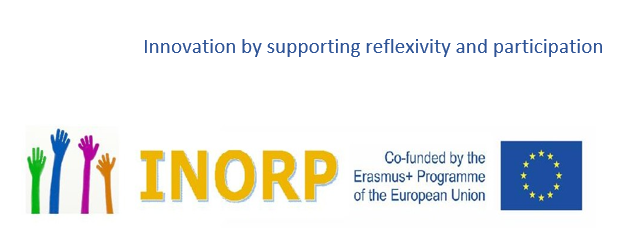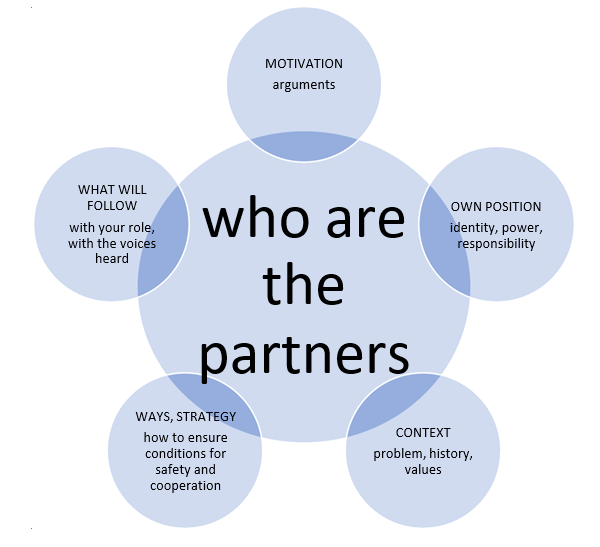Reflexivity and participation in communities

3. Level 1: Basic academic level (1st cycle) module
3.5. Lesson 5 (3 hours): Preparing for participative learning experiences
| Theme | Topic | Guiding questions |
| Establishing partnership with a user group |
In many countries, it is now a requirement that users of social services become engaged in teaching the social work curriculum. Pre-contact considerations: - recourse to pre-existing contacts (through placements, academics involved in service agencies, participative research projects) - clarification of “representation” (do user groups select speakers or does the academic side make direct contacts; speaking for themselves or on behalf of a group - safeguarding vulnerability: engagements must be voluntary, contractual arrangements concerning confidentiality; boundary setting and offers of emotional and financial support for participation - topics and objectives of presentations need to be clearly defined beforehand and if needed re-negotiated explicitly in the process. |
What do I expect to learn from the direct encounter with accounts of experiences by service users? What are they expecting to gain from the encounter? What is the shared context that “frames” the |
|
Opportunities for shared learning |
Listening to “authentic voices” of “lived The unexpected is likely to be controversial, one- sided, in conflict with “standard opinion”. Choosing a secure setting is vital (preparation of a comfortable arrangement of a seminar room, It requires, but also contributes to, an inclusive atmosphere in which differences of background, identity and power do not disappear (caution: “prescribed tolerance” can invalidate the encounter!) but can be openly acknowledged. Learning aims at distinguishing between legitimate and imposed boundaries and differences and at negotiating mutually acceptable meanings given to those differences. |
What did I expect to hear from the presenters? Which kind of environment communicates a sense of safety to the participants? How can I constructively deal with strong emotions, in myself and in others? Which parts of the |
| Pitfalls and risks |
Service users as presenters of their knowledge might not have any experience in sharing it with Presenters are very dependent on authentic Divergences of interest between different presenters might arise during a session. Service users may have experiences of hostility against their “voice” in a public context and |
How can I express “active listening”? With what kind of reactions can I facilitate the learning opportunities of the What are the indicators of “genuine appreciation”? |
Resources:
Viz zdroj INORP, výstup 4: Model RPP:

Driessens, K. a Lyssens-Danneboom, Vicky, editor. (2022). Involving Service Users in Social Work Education, Research and Policy : A Comparative European Analysis.Bristol: Bristol University Press
*Goh, E. C. L. (2012). Integrating Mindfulness and Reflection in the Teaching and Learning of Listening Skills for Undergraduate Social Work Students in Singapore. Social Work Education, 31(5). https://doi.org/10.1080/02615479.2011.579094
Rogers, A. a Welch, B. (2009). Using standardized clients in the classroom: An evaluation of a training module to teach active listening skills to social work students. Journal of Teaching in Social Work, 29 (2). https://doi.org/10.1080/08841230802238203
Schiettecat, T., Roets, G., Vandenbroeck, M. (2018). Capturing life histories about movements into and out of poverty: A road with pits and bumps. Qualitative Social Work, 17(3), 387-404.
Spector-Mersel, G. (2017). Life Story Reflection in Social Work Education: A Practical Model. Journal of Social Work Education, 53 (2). https://doi.org/10.1080/10437797.2016.1243498
